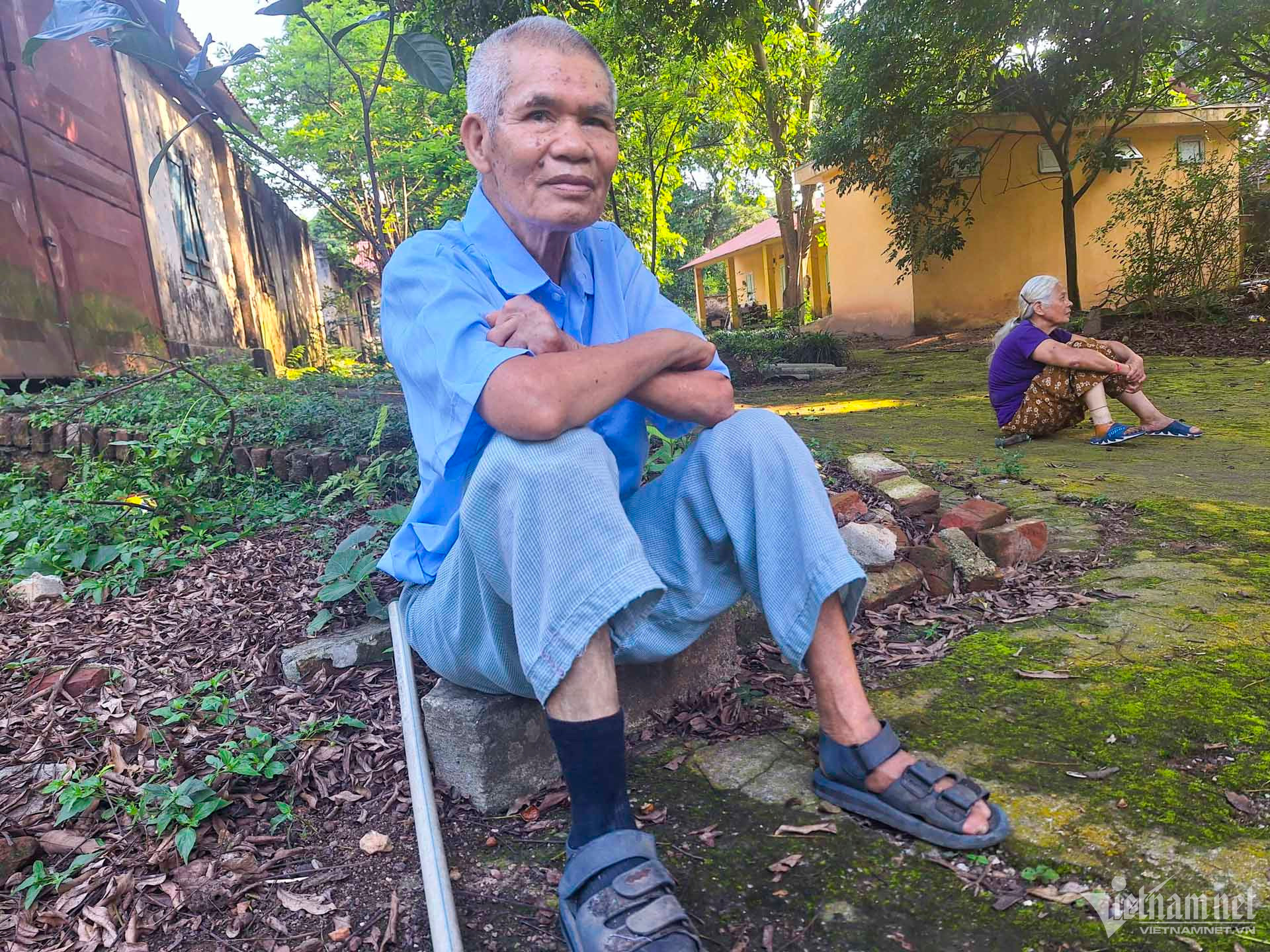
Qua Cam Sanatorium, now Bac Ninh Leprosy and Dermatology Hospital in Hoa Long commune, Yen Phong district in Bac Ninh province is the home for 50 patients who are under treatment. Most of them are over 70 years old.
Qua Cam Sanatorium, established in 1913, was a ‘nobody in, nobody out’ place.
The row of rooms for Qua Cam’s doctors and medical workers is the lowest. The rooms for Team 1, Team 2, and Team 3 of patients are higher. And the rooms for the special team is above them and half way down the mountain.
The special team includes 10 men and women. They all suffer from leprosy. Some of them have lost their legs and hands, while others are deaf or blind. As they cannot serve themselves in daily activities, they rely on the care of doctors and medical workers there.
However, they are not sullen and sad. Those who are still healthy enough try to wash clothes, grow vegetables and raise fowl themselves. Meanwhile, the patients who cannot take care of themselves, versify, sing songs, and gossip.
Some of them have spent all their lives there. Luu Quang Hung, 86, from Tien Du district in Bac Ninh province, said he has lived there since childhood.
“I came here in 1953, when I was 15 years old. I receive allowance from the state. I return to the hometown once a year, but I stay there for only one or two days,” he said.
Chu Thi Chi, 72, from Phu Tho, became a member of the sanatorium in 1961, when she was 10 years old. Recalling the days in the countryside, Chi could not help crying. As locals heard that Chi had contracted leprosy, they called her Death and drove her away. Other members of her family did not look after her.
Since Chi came to the hospital, she has considered it her home and treats the other patients as her relatives.
“I have never returned to my hometown since then. Tens of years have elapsed, and I don’t know how my village has changed,” she said.
Despite physical and mental injuries, the people at the hospital remain optimistic. Many of them have developed feelings for each other and have become husband and wife. Numerous weddings have been organized, witnessed by the doctors and other patients at the hospital.
The leprosy sanatorium nowadays not only houses lonely old people, but also echoes with the laughter of children and the joy of small happy families.
Bao Khanh